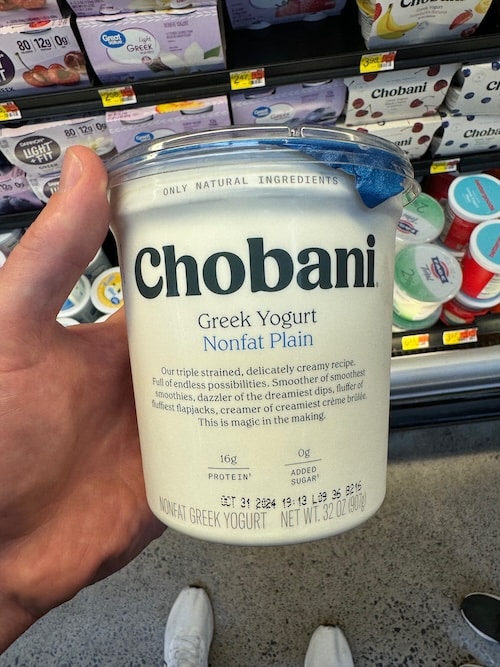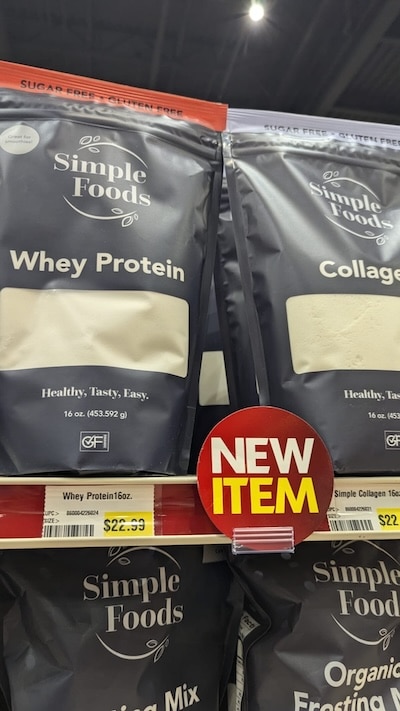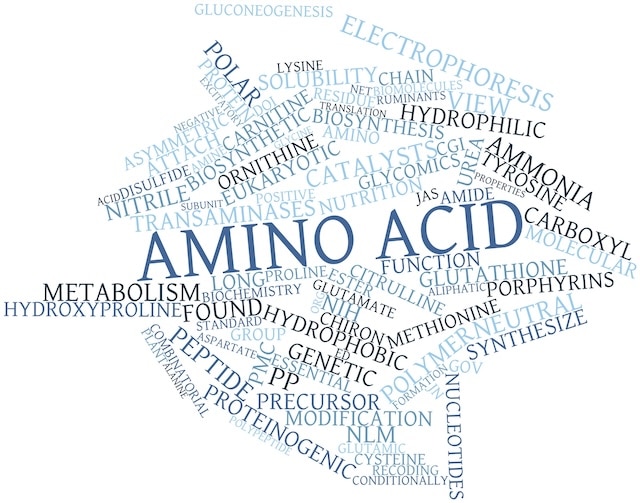Ranking the Best Amino Acid Sources (Food & Supplements)
Amino acids are the foundation of life, functioning as the building blocks of proteins that fuel nearly every process within the human body.
From repairing and growing muscle tissue to supporting the production of enzymes, hormones, and neurotransmitters, amino acids are indispensable to human health.
Their role in regulating immune function and enhancing overall recovery makes them crucial not only for those who lead active lifestyles but also for maintaining basic bodily functions.
Having used a variety of amino acid supplements over the years—whether in the form of protein powders, BCAA (Branched-Chain Amino Acids) supplements, or EAA (Essential Amino Acids) products—I’ve experienced firsthand how effective and beneficial they can be.
However, it’s important to note that these supplements truly shine when paired with physical activity, muscle-building exercises, and proper recovery.
They aren’t magic solutions for achieving results without effort. They’re tools designed to enhance muscle repair, performance, and recovery for individuals who actively engage in fitness or athletic activities.
What Are Amino Acids?
Amino acids contain a basic amino group (-NH2), a carboxyl group (-COOH), a hydrogen atom, and a distinctive side chain that determines the specific type of amino acid.
Here is a few of the primary roles of amino acids in the body:
- Muscle Repair and Growth: Amino acids are essential for repairing damaged muscle tissue and building new muscle, especially after exercise.
- Enzyme and Hormone Production: Many amino acids help synthesize enzymes and hormones, which regulate various bodily functions, including metabolism and mood.
- Neurotransmitter Function: Amino acids, such as tryptophan and tyrosine, are precursors to neurotransmitters like serotonin and dopamine, which regulate mood, cognition, and sleep.
- Immune Function: Amino acids like glutamine play a key role in immune health by supporting the production of white blood cells and maintaining gut integrity.
There are 20 amino acids that the body uses to build proteins, and they can be classified into three main categories:
1. Essential Amino Acids (EAAs)
- Definition: These amino acids cannot be synthesized by the body and must be obtained through diet.
- List of EAAs:
- Histidine
- Isoleucine
- Leucine
- Lysine
- Methionine
- Phenylalanine
- Threonine
- Tryptophan
- Valine
- Importance: Essential amino acids are vital for muscle growth, tissue repair, immune function, and energy production.
2. Non-Essential Amino Acids
- Definition: These can be synthesized by the body, so they don’t necessarily need to be obtained from the diet.
- List of Non-Essential Amino Acids:
- Alanine
- Asparagine
- Aspartic acid
- Glutamic acid
- Importance: These amino acids support various bodily functions, including metabolism, immune response, and detoxification.
3. Conditionally Essential Amino Acids
- Definition: These amino acids are typically non-essential but become essential under certain conditions, such as during illness, stress, or intense physical activity.
- List of Conditionally Essential Amino Acids:
- L-Arginine
- L-Cysteine
- L-Glutamine
- L-Glycine
- L-Proline
- L-Serine
- L-Tyrosine
- Importance: These amino acids support recovery from illness or injury, maintain immune function, and help with muscle repair and growth.
Sources of Amino Acids

Amino acids can be obtained from both animal and plant-based protein sources, and in both supplements and food or drinks.
For most people, amino acids from whole foods are the best choice due to their comprehensive nutritional benefits and better absorption over time. However, amino acid supplements are beneficial in situations requiring rapid recovery, during intense training cycles, or when certain amino acid levels need to be specifically boosted.
The best approach is often a combination, using food as the primary source while supplementing as needed for athletic performance or recovery.
Food Sources
- Animal Sources: Eggs, meat, fish, dairy, and poultry are complete protein sources containing all essential amino acids.
- Plant Sources: Quinoa, soy, chia seeds, and hemp seeds are examples of plant-based sources that provide complete proteins. Combining different plant foods, like rice and beans, can also provide all essential amino acids.
Amino acids are critical for overall health, making them important for athletes, individuals recovering from illness, or anyone looking to maintain optimal bodily function.
Here is some more information about why amino acids in food are generally considered superior to amino acid supplements, though both have their place depending on individual needs and goals.
- Nutrient Synergy
Whole foods offer a variety of nutrients like vitamins, minerals, and healthy fats that work synergistically with amino acids to promote overall health and well-being. For instance, consuming protein-rich foods like fish, eggs, or legumes provides not just amino acids but also essential nutrients like omega-3s, B-vitamins, and fiber. - Better Absorption and Utilization
Amino acids from whole foods are digested and absorbed at a natural pace, allowing the body to efficiently use them for muscle repair, immune function, and other physiological processes. Whole proteins in food are typically better utilized by the body due to the presence of digestive enzymes and other factors that enhance absorption. - Sustained Release
Whole foods provide amino acids over a longer period, helping with steady muscle repair and recovery, especially when consuming slow-digesting proteins like casein in dairy. - Balanced Diet Support
By focusing on amino acids from food, you’re more likely to eat a balanced diet, which helps with maintaining overall health and energy levels.
Supplements
There are multiple types of amino acid supplements, but many of the primary benefits are consistent regardless of which amino acid supplement you use.
- Convenience and Targeted Use
Amino acid supplements, especially branched-chain amino acids (BCAAs) and essential amino acids (EAAs), are convenient for athletes who need fast-acting protein sources around workouts. These supplements can be quickly absorbed, making them ideal for pre- or post-workout recovery. - Faster Absorption
Free-form amino acid supplements are absorbed faster than whole foods, providing a quicker source of nutrients for muscle recovery after exercise. This can be especially useful during intense training or for those who need rapid recovery. - Specific Amino Acid Needs
Some people may need to supplement specific amino acids, like leucine for muscle synthesis or glutamine for gut health. Supplements allow for more targeted intake that is difficult to achieve from food alone.
Here is some more information on the various types of amino acid supplements available:

1. Whey Protein (Best Amino Acid Source)
- Amino Acid Content: Whey protein is considered the gold standard for amino acid content and bioavailability. It is a complete protein, meaning it contains all nine essential amino acids (EAAs) in optimal ratios, including high amounts of branched-chain amino acids (BCAAs), particularly leucine, which is crucial for muscle protein synthesis.
- Absorption Rate: Whey protein is fast-digesting, making it highly effective for post-workout recovery when your muscles need immediate access to amino acids.
- Best For: Those looking to build and repair muscle quickly. It’s highly effective for athletes and bodybuilders.
2. Essential Amino Acids (EAAs)
- Amino Acid Content: EAA supplements contain all nine essential amino acids. These are the amino acids that the body cannot produce on its own, so they must come from dietary sources. Unlike complete protein sources like whey, EAAs are delivered in their free form, meaning they require minimal digestion and are rapidly absorbed.
- Best For: EAAs are excellent for individuals needing a quick, targeted source of essential amino acids, especially around workouts or during long periods of fasting. However, EAAs may not be as filling or nutritionally complete as whole protein sources like whey or casein.
3. Casein Protein
- Amino Acid Content: Casein is also a complete protein with all essential amino acids, though it is absorbed more slowly than whey. This slow-release characteristic makes it particularly useful for providing a steady stream of amino acids over time, which helps with muscle repair during periods when you’re not eating, such as during sleep.
- Best For: Casein is ideal for muscle recovery during long periods of fasting or overnight. It helps prevent muscle breakdown by maintaining a constant supply of amino acids to the muscles.
4. Branched-Chain Amino Acids (BCAAs)
- Amino Acid Content: BCAAs include three essential amino acids: leucine, isoleucine, and valine. While these amino acids are important for muscle protein synthesis and reducing muscle fatigue, BCAAs are not a complete protein source because they lack the other six essential amino acids.
- Best For: BCAAs are beneficial for individuals who are already consuming enough protein from whole food sources and need an extra boost for muscle recovery and endurance. They are often used during workouts to reduce muscle breakdown, but they are not sufficient on their own for overall muscle growth. When choosing between BCAAs vs EAA supplements, it’s important to understand that BCAAs focus on three key amino acids for muscle recovery, while EAAs provide all nine essential amino acids. Both play a vital role in supporting muscle repair, but EAAs offer a more complete nutritional profile.
5. Plant Protein Powder
- Amino Acid Content: While individual plant proteins (such as rice or pea protein) may be incomplete on their own, many plant-based protein supplements now combine multiple sources, such as rice, pea, chia, and hemp protein, to create a complete protein profile. By blending these proteins, the supplement contains all nine essential amino acids in sufficient quantities. Notably, hemp protein is a plant-based source that is naturally a complete protein, providing a balanced array of amino acids, including the important BCAAs like leucine.
- Leucine and Bioavailability: Although plant proteins generally have lower levels of leucine—the amino acid most responsible for muscle protein synthesis—combining multiple plant protein sources helps improve leucine content and overall amino acid balance. However, plant proteins tend to have lower bioavailability compared to animal-based proteins, meaning the body may not absorb and utilize them as efficiently.
- Best For: Plant protein supplements are ideal for vegetarians, vegans, or anyone with dietary restrictions seeking a complete amino acid profile from plant-based sources. While they are less effective for muscle building compared to whey or other animal-based proteins due to bioavailability challenges, they are still a healthy and sustainable option for those focused on fitness and muscle repair. By combining various plant proteins, these supplements overcome the limitations of individual plant protein sources and can support muscle growth and recovery when used appropriately.
Best Amino Acid Food Sources

Here are ten of the best amino acid sources, containing both essential and non-essential amino acids, along with additional benefits for muscle function, recovery, and overall health.
These foods offer a well-rounded array of essential and non-essential amino acids, supporting everything from muscle repair and growth to immune function and digestion.
Incorporating a variety of these protein-rich foods into your diet ensures that you are providing your body with the amino acids it needs for optimal performance, recovery, and health.
Whether you’re an athlete, a fitness enthusiast, or someone focused on overall well-being, these foods are invaluable to achieving your health and fitness goals.
1. Eggs
Eggs are widely regarded as one of the best sources of high-quality protein, providing all nine essential amino acids in the right ratios. They are particularly high in leucine, a branched-chain amino acid (BCAA) that plays a key role in muscle protein synthesis.
Leucine activates pathways in the body that stimulate muscle growth and repair, making eggs a staple for those focusing on muscle development and recovery.
Additionally, eggs provide essential vitamins and minerals like B12, which supports energy production, making them a highly nutritious food.
2. Chicken Breast
Lean chicken breast is a top choice for athletes and fitness enthusiasts because it’s low in fat and packed with protein. It contains all essential amino acids, ensuring that your body has the building blocks it needs for muscle repair, immune function, and overall recovery.
Chicken breast is particularly valued for its high protein-to-calorie ratio, which makes it an excellent choice for those aiming to build muscle while maintaining a lean physique. Grilled or baked chicken breast also provides selenium and B vitamins, which are vital for energy metabolism and muscle function.
3. Salmon
Salmon is not only rich in essential amino acids but also loaded with omega-3 fatty acids, particularly EPA and DHA. These omega-3s help reduce inflammation, support heart health, and improve muscle recovery after exercise.
The combination of high-quality protein and healthy fats makes salmon a powerful food for athletes looking to repair muscle damage and improve endurance. Salmon’s anti-inflammatory properties may also help reduce the risk of muscle soreness after strenuous workouts.
4. Beef
Beef is a protein powerhouse, offering all essential amino acids with a significant amount of leucine, isoleucine, and valine—three key BCAAs that promote muscle recovery and endurance.
Beef is particularly beneficial for those engaged in strength training or heavy resistance exercises because these BCAAs help reduce muscle breakdown and enhance protein synthesis.
Additionally, beef provides other important nutrients like iron and zinc, which support oxygen delivery to muscles and boost immune health.
5. Greek Yogurt
Greek yogurt is an excellent source of protein, with about twice the amount found in regular yogurt, providing all essential amino acids needed for muscle repair. The probiotics in Greek yogurt support gut health, which is crucial for nutrient absorption and overall digestion.
The casein in Greek yogurt offers a slow-release protein, making it ideal for providing a steady stream of amino acids to muscles over several hours, especially useful as a bedtime snack to aid muscle recovery during sleep.
6. Quinoa
Quinoa is a unique plant-based protein that contains all nine essential amino acids, making it a rare “complete protein” in the plant world. This makes quinoa an ideal option for vegetarians and vegans looking to meet their protein and amino acid needs.
Quinoa is also high in fiber, which aids digestion and helps maintain a feeling of fullness. It’s a versatile grain that can be used in salads, as a side dish, or even as a breakfast porridge.
7. Tofu
Tofu, made from soybeans, is another complete protein that contains all essential amino acids. It’s particularly rich in lysine, an amino acid that is often lacking in plant-based diets. Tofu is a great option for muscle repair and maintenance, especially for those following a plant-based diet.
It is also a rich source of isoflavones, compounds that may help regulate cholesterol and reduce the risk of heart disease. Tofu is highly versatile and can be grilled, baked, or added to stir-fries, soups, and salads.
8. Lentils
Lentils are a nutrient-dense legume packed with amino acids, especially lysine and arginine, which play roles in muscle repair and immune function. While they are not a complete protein on their own, pairing them with whole grains like rice can provide all essential amino acids.
Lentils are also rich in fiber and complex carbohydrates, making them a great option for sustained energy and satiety. The high fiber content supports digestion and helps maintain stable blood sugar levels, which is important for consistent energy throughout the day.
9. Almonds
Almonds are a source of non-essential amino acids like arginine and glutamine, which are important for heart health, immune function, and muscle recovery. Although almonds are not a complete protein, they complement other plant-based foods to help meet amino acid needs.
Almonds are also rich in healthy fats, vitamin E, and magnesium, which support muscle function and protect against oxidative stress. They are a convenient snack for athletes and those looking to maintain energy levels while supporting overall health.
10. Cottage Cheese
Cottage cheese is a standout source of casein protein, which digests slowly and provides a steady release of amino acids to support muscle recovery, especially during sleep. Its slow-digesting properties make it an excellent choice for a pre-bedtime snack, helping to prevent muscle breakdown overnight.
Cottage cheese is also rich in calcium, which supports bone health, making it beneficial for both muscle and skeletal strength.
It’s an excellent food choice for athletes looking to optimize muscle repair and growth over extended periods.
11. Bone Broth
Bone broth is an excellent natural source of amino acids, offering a rich profile of essential and non-essential amino acids that support joint health, digestion, and muscle recovery.
Unlike many protein sources, bone broth is particularly high in glycine, proline, and glutamine—key amino acids that promote gut integrity, reduce inflammation, and enhance connective tissue repair.
Drinking bone broth in the morning can be a powerful way to start the day, providing a steady supply of amino acids that fuel muscle recovery and overall bodily function. The collagen content in bone broth also makes it beneficial for skin, hair, and joint health, making it an excellent addition to any diet focused on longevity and performance.
Whether consumed on its own or used as a base for soups and stews, bone broth is a simple yet highly effective way to boost amino acid intake naturally.
Best Amino Acid Supplements
Here’s an overview of some of the best amino acid supplements. There are several benefits of amino acid supplements depending on fitness goals, dietary preferences, and overall health needs.
1. Optimum Nutrition Gold Standard Whey (Best Whey Protein)
- Key Features: Gold Standard Whey by Optimum Nutrition is one of the most popular whey protein supplements on the market, known for its high-quality protein content and fast absorption. It provides a rich source of essential amino acids (EAAs), including branched-chain amino acids (BCAAs) like leucine, isoleucine, and valine, which are crucial for muscle repair and recovery.
- Why It’s the Best: The fast-absorbing nature of whey protein makes this supplement ideal for post-workout recovery. It’s also low in fats and carbohydrates, making it a great option for lean muscle growth. With a high protein content per serving, it efficiently supports muscle synthesis.
- Best For: Athletes and fitness enthusiasts looking for a high-quality protein source to enhance muscle recovery and growth.
Last update on 2025-07-03 / This article includes affiliate links/Images via Amazon Product Advertising API. I may earn commissions on purchases made through these links.
2. Garden of Life Raw Protein & Greens (Best Plant Protein)
- Key Features: Garden of Life Protein and Greens is a plant-based protein supplement that combines protein from organic sources like pea protein, sprouted grains, and seeds with nutrient-dense greens like kale, spinach, and alfalfa. It’s an excellent choice for those seeking a complete amino acid profile from plant sources, as it contains all essential amino acids.
- Why It’s Great: This supplement is free from synthetic additives and artificial ingredients, making it ideal for those focused on clean, whole-food-based supplementation. It also supports digestion and gut health due to the presence of digestive enzymes and probiotics.
- Best For: Vegans, vegetarians, and anyone looking for a natural, plant-based protein with additional greens for overall health support. (This is the protein powder I use).
Last update on 2025-07-03 / This article includes affiliate links/Images via Amazon Product Advertising API. I may earn commissions on purchases made through these links.
3. RSP AminoLean
- Key Features: RSP AminoLean is an amino acid supplement that combines BCAAs, EAAs, and a blend of natural energy-boosting ingredients like green tea extract and CLA. It’s formulated to help with muscle recovery, energy, and fat burning, making it a versatile choice for fitness enthusiasts.
- Why It Stands Out: This supplement provides both the building blocks for muscle recovery and a natural energy boost, making it a great pre-workout or intra-workout choice. Its inclusion of ingredients like CLA also supports fat metabolism, making it ideal for those looking to build lean muscle while burning fat.
- Best For: Individuals seeking an all-in-one product that supports energy, fat loss, and muscle recovery, without the need for multiple supplements.
Last update on 2025-07-03 / This article includes affiliate links/Images via Amazon Product Advertising API. I may earn commissions on purchases made through these links.
4. Xtend BCAAs
- Key Features: Xtend BCAAs is a BCAA-focused supplement that delivers a potent dose of leucine, isoleucine, and valine in a 2:1:1 ratio, which is optimal for muscle protein synthesis. It also includes electrolytes to support hydration during workouts.
- Why It’s Excellent: Xtend helps reduce muscle soreness, increase endurance, and speed up recovery by delivering BCAAs directly to muscles during workouts. The added electrolytes make it especially beneficial for hydration and preventing muscle cramps during long or intense training sessions.
- Best For: Athletes looking for a targeted BCAA supplement to reduce fatigue and improve recovery during high-intensity or endurance workouts.
Last update on 2025-07-03 / This article includes affiliate links/Images via Amazon Product Advertising API. I may earn commissions on purchases made through these links.
5. OWYN Protein Shakes
- Key Features: OWYN Protein Shakes are plant-based and known for their clean ingredient list, offering 20 grams of protein from pea, pumpkin seed, and flaxseed. They are also free of the top eight allergens, making them safe for people with allergies. These shakes provide all essential amino acids and are fortified with Omega-3s and probiotics.
- Why It’s Great: OWYN stands for “Only What You Need,” and their protein shakes live up to this promise with a clean, balanced nutrient profile. The inclusion of Omega-3s and probiotics supports overall health, digestion, and inflammation reduction, making it a versatile daily supplement.
- Best For: People looking for a convenient, allergen-free, plant-based protein shake that also supports digestive health and reduces inflammation.
Last update on 2025-07-03 / This article includes affiliate links/Images via Amazon Product Advertising API. I may earn commissions on purchases made through these links.
This website does not provide medical advice. This website site does contain affiliate links, and purchases may earn a commission.
Read my Medical Disclaimer, Review Disclaimer, and Publishing Policies for more details. Use of this site indicates acceptance of these terms.








